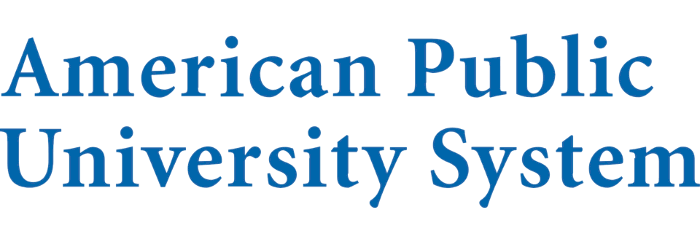2023 Most Affordable Bachelor's in Engineering Online

The field of engineering is varied and vast, so the programs listed below often represent different types of engineering. For example, chemical, mechanical, and software engineering all fall under the general umbrella, so take some time to research the differences and decide what kind of program is right for you. In addition to these bachelor’s degrees, there are also online graduate degree programs. For example, you can get a master's degree in aerospace engineering, chemical engineering, and civil engineering, to name a few areas.
View our methodology for more details about rankings or learn more about us.
ON THIS PAGE
Overview Worth It? Scholarships Types Careers| Rank | School | Locations | Annual Tuition |
|---|---|---|---|
| University of North Dakota | Grand Forks (ND) | $7,957 | |
| Bemidji State University | Bemidji (MN) | $8,690 | |
| Southern Illinois University - Carbondale | Carbondale (IL) | $9,645 | |
| University of Southern Mississippi | Hattiesburg (MS) | $9,694 | |
| Florida International University | Miami (FL) | $11,276 | |
| University of Alabama | Tuscaloosa (AL) | $11,550 | |
| American Public University System | Charles Town (WV) | $11,745 | |
| Old Dominion University | Norfolk (VA) | $13,110 | |
| Liberty University | Lynchburg (VA) | $13,869 | |
| University of Arizona | Tucson (AZ) | $16,375 |
| # 1 | University of New Mexico Annual tuition: $6,136 |
| # 2 | Mississippi State University Annual tuition: $7,335 |
| # 3 | University of Idaho Annual tuition: $8,235 |
| # 2 | Western Governors University Annual tuition: $6,750 |
| # 3 | Lamar University Annual tuition: $7,440 |
| # 4 | Eastern New Mexico University - Main Campus Annual tuition: $7,492 |
| # 1 | Montana Technological University Annual tuition: $3,921 |
| # 3 | University of Arkansas Annual tuition: $4,558 |
| # 4 | Texas Tech University Annual tuition: $5,670 |
| # 2 | Middle Georgia State University Annual tuition: $8,670 |
| # 4 | Champlain College Annual tuition: $9,540 |
| # 5 | Southern New Hampshire University Online Annual tuition: $9,600 |
| # 1 | University of New Mexico Annual tuition: $4,583 |
| # 2 | Kennesaw State University Annual tuition: $6,894 |
| # 3 | Mississippi State University Annual tuition: $7,335 |
University of North Dakota Grand Forks (ND) The University of North Dakota (UND) is a large, public institution. UND offers several bachelor’s degree programs for engineering, such as civil engineering, geological engineering, and electrical engineering, among others. These programs require 125-130 credits and take about four to five years to complete with a full-time schedule. These programs provide students with an understanding of the math, resources, and regulations, which engineering professionals need to succeed. UND’s engineering programs also allow students to combine majors and/or earn their master’s degrees by adding just one extra year. The chemical engineering and mechanical engineering programs also offer concentrations for students who want to specialize. At UND, students use Blackboard to access their online coursework, which can be done online or in person. Online students can access the Math Active Learning Lab (MALL), the Math Learning Center, and other university resources.
|
Bemidji State University Bemidji (MN) Bemidji State University (BSU) is a medium-sized, public institution that offers an online Bachelor of Applied Science in Applied Engineering. This program requires students to transfer 38 technical credits (an associate degree) from a related program. By transferring these credits, students can graduate in two years with a full-time schedule, as they complete the program’s 78 credit hours. Common courses in this program include Project Management Methodology, Industrial Design & Innovation, and Services Process/Improvement, along with an Emphasis-Related capstone project. Graduates of this program go on to work as production control managers, industrial engineers, and safety engineers. At BSU, students use Brightspace to access their coursework, which is fully online and asynchronous. Online students have access to all university resources and the Extended Learning Center.
|
Southern Illinois University - Carbondale Carbondale (IL) Southern Illinois University - Carbondale (SIU Carbondale) is a medium-sized, public institution. SIU Carbondale offers an online Bachelor of Science in Industrial Management and Applied Engineering, which requires 120 credit hours. This program typically takes four years with a full-time schedule, but students can transfer previous credits through the university’s capstone program and graduate in as little as two years. Core courses for this program include Industrial Safety, Production & Inventory Control, and Facilities Planning. Students can use work experience and/or internships to earn credit hours. Graduates of this program go on to work in the fields of industrial management and applied engineering. At SIU - Carbondale, students use SalukiNet to access their coursework, which is fully online and includes live lectures. Online students have access to all university resources.
|
University of Southern Mississippi Hattiesburg (MS) The University of Southern Mississippi (Southern Miss) is a medium-sized, public institution that offers an online Bachelor of Science in Industrial Engineering Technology, which requires 120 credit hours and takes about four years to complete at a full-time pace. This program also requires a writing course, a speaking course, and a capstone/senior project. Some core courses in this program include Industrial Automation, Logistics Transportation Systems, and Engineering Economics. Graduates of this program may go on to work as operation managers, lead engineers, and industrial specialists. At Southern Miss, students use Canvas to access their coursework, which is fully online. At USM, online students have access to all university resources.
|
Florida International University Miami (FL) The Florida International University (FIU) is a large, public university. FIU Online offers both an online Bachelor of Science in Computer Engineering and an online Bachelor of Science in Electrical Engineering, which each require 128 credit hours. Students can complete one of these degrees in four years with a full-time study schedule. These programs include various courses, such as Engineering Orientation, Evolution of Engineering Data, and Engineering Economy. FIU Online offers career assistance through its Career Engage program, which helps engineering students get certified and find work after graduation. Graduates of the BAS program work as computer software engineers, electronic drafters, and electrical engineers. At FIU Online, students use Canvas to access their online coursework, which students complete remotely. Additionally, online students can access the university library, career services, and student counseling.
|
University of Alabama Tuscaloosa (AL) The University of Alabama (UA) is a large, public university. UA offers an online Bachelor of Science in Mechanical Engineering, which requires 120 credit hours. With a full-time schedule, students can complete this online degree in just four years. Some core courses in this program include Modern Manufacturing Practices, Small-Scale Engineering Graphics, and Fluid Mechanics. UA’s bachelor's program prepares students for all aspects of product manufacturing. Graduates of this program often go on to work in many industries, such as automotive, bioengineering, robotics, and manufacturing. At UA, students use Blackboard to access their coursework, which is primarily online. Three courses require weekend labs in Tuscaloosa, Alabama. Also, live, in-person proctoring is required to complete exams. At UA, online students have access to all university resources.
|
American Public University System Charles Town (WV) American Public University (APU) is a large, private institution that's part of the American Public University System. It offers an online Bachelor of Engineering - Electrical Engineering requiring 128 credit hours. It can be completed in about four years with a full-time schedule. The program is designed to provide students with a foundation in theory, practices, tools, and technology. Core courses cover topics such as electrical engineering fundamentals, electrical circuit analysis, analog and digital circuit theory, discrete math, linear algebra, calculus, and physics. A senior seminar project is required for all students. At APU, students use Sakai to access their online coursework, which is asynchronous. Students can finish at a full- or part-time pace. Additionally, online students can access the university library and student resource centers.
|
Old Dominion University Norfolk (VA) Old Dominion University (ODU) is a large, public institution. ODU Online offers an online Bachelor of Science in Computer Engineering, which requires 128 credit hours. This program takes about four years to complete and includes courses that cover data analytics engineering, computer hardware systems, software development, and cybersecurity. ODU Online allows students to transfer up to 90 credits from another institution to accelerate graduation. Graduates of this program go on to work as system analysts, software designers, and product manufacturers. At ODU Online, students use Blackboard to access their coursework, which is fully online and asynchronous. Online students have access to all university resources.
|
Liberty University Learn more about how we make money."> Lynchburg (VA) Liberty University (LU) is a large, private university that focuses on "training champions for Christ." LU’s School of Engineering includes an online Bachelor of Science in Civil Engineering and an online Bachelor of Science in Industrial Engineering Technology. These programs require 130 and 120 credit hours, respectively. Students can graduate in three to four years if they maintain a full-time schedule. Some core courses shared between these programs include Computer-aided Design, Principles of Management, and Engineering Economy. Graduates typically work in engineering roles for the military, private sector companies, government, and other industries. At LU, students use Blackboard to access their coursework, which is fully online and asynchronous. Online students can access the university library and all other student resources.
|
University of Arizona Learn more about how we make money."> Tucson (AZ) The University of Arizona (UA) is a large, public school that offers three online degrees in engineering: (1) a Bachelor of Science in Electrical and Computer Engineering, (2) Bachelor of Science in Software Engineering, and (3) Bachelor of Applied Science in Cyber Operations - Cyber Engineering. These programs each require 120 to 130 credit hours and take about four years to complete with a full-time schedule. Courses cover topics such as cybersecurity, network analysis, software design, and computer programming. Graduates may work as security officers, software architects, and computer engineers. At UA, students use Brightspace to access their online coursework, which is fully online. At UA, online students have access to all university resources.
|
Overview of Online Engineering Degrees
Engineering degree programs prepare students with the necessary skills to become professional engineers in various fields, such as civil engineering, aerospace engineering, nuclear engineering, and health and safety engineering. Engineers work for the federal government, municipal and state departments, engineering design firms, the military, and private industries, to name a few. They are often responsible for maintaining the efficiency of technological and mechanical systems within buildings or a city's infrastructure. For example, engineers may monitor systems or consumer products for potential environmental safety/health hazards and implement changes accordingly.
Many schools offer engineering degree programs that are 100% online, while others prefer hybrid models that require some time on campus. Overall, students must earn a minimum of 120 credit hours. Although an online bachelor's engineering degree is designed to be completed in four years, the program could take up to six years for part-time students to finish.
Engineers are often responsible for maintaining the efficiency of technological and mechanical systems within buildings or a city's infrastructure.
The average annual tuition for an online bachelor's in engineering costs $25,824, but our rankings list presents some more affordable online programs. Many students apply to multiple sources for financial aid to pay tuition costs and other student fees. However, to qualify for aid, students need to attend an accredited school and program. The Accreditation Board for Engineering and Technology (ABET), a globally recognized nonprofit, accredits many engineering programs. This accreditation board ensures that engineering programs are held to the highest standards and meet industry demands. ABET accredits over 4,000 engineering programs in more than 800 schools worldwide.
Is an Online Engineering Degree Worth It?
One of the first questions students often ask is whether an online degree is worth the time and cost it takes to complete. An online engineering degree's value is determined by numerous factors, including career growth potential, work-life balance, and job satisfaction. Students should also consider their personal and professional goals, such as their ability to pay back student debt after graduation and whether they will need further education later on for job advancement in their chosen field. Some benefits to an online degree include its potential flexibility and the convenience of studying from home, but students should also acknowledge the challenges of remote learning when deciding on a program. For example, issues may arise involving time management, and networking opportunities to connect in-person with peers and mentors may be more limited.
When considering whether an online engineering degree is worth the investment, it may be helpful to review some pros and cons:
Potential Benefits
- Salary potential. Many engineering occupations pay over $90,000 per year. For example, according to the BLS, aerospace engineers make $118,610 on average, while petroleum engineers earn median annual wages of $137,000.
- Immediate entry-level options. Engineers in all fields can embark on their careers with only a bachelor's degree and can decide later whether a master's is worth the cost.
- High job satisfaction. According to a survey produced by the Institute of Electrical and Electronics Engineers, Inc. in 2020, engineers' job satisfaction has substantially increased in recent years, including in the following categories: technical challenges, employer’s support for technical vitality, compensation, and advancement prospects.
Potential Drawbacks
- Slow overall job growth. Many engineering fields are merely expected to grow at the national average — or even slower — for all occupations. For example, civil engineering and materials engineering are projected to grow by only 2%, which is well below the average. However, it should be noted that some concentrations are expected to grow slightly faster than average.
- Salary gaps. Large salary gaps along racial and gender lines favor white men in the field at the expense of all others.
- High unemployment rates. Several engineering specialties feature relatively high levels of unemployment, such as general and industrial engineering, which have 4.9% and 4.7% unemployment rates, respectively.
Funding an Online Bachelor's Degree in Engineering
Many students need financial assistance to help pay educational expenses. First, students should search for an affordable online bachelor's in engineering program that meets their needs and minimizes debt. It may also be helpful for students to consider how comfortable they are with the amount of debt they may incur.
Once a student has chosen their school and course of study, they should complete a Free Application for Federal Student Aid (FAFSA) to see if they qualify for grants, such as Pell grants, or subsidized and unsubsidized federal student loans. Federal student loans offer more repayment options and flexibility than private loans. However, if students choose to apply for loans from banks and other financial institutions, they should do so with care because private loans often have higher interest rates and stricter repayment requirements than federal loans.
After a student receives their eligibility status for federal financial aid, they should check with their school's financial aid office to see if they offer other scholarships or work-study programs. Sometimes, students can become employees at their school and qualify for discounted or free tuition, even if they only work part-time.
Scholarships for Engineering Students
Several engineering organizations offer scholarships to offset tuition costs. Organizations often require membership to be eligible for their scholarships but most offer discounted membership rates for students. Below are some scholarships geared toward those pursuing an engineering degree.
The Environmental Engineering and Science Foundation (EESF) Scholarships
The EESF offers two $2,500 scholarships annually to undergraduate students majoring in environmental engineering. Students must be transferring to a four-year college from a two-year community college with a minimum GPA of 3.0 to qualify.
The American Institute of Aeronautics and Astronautics (AIAA) Foundation Undergraduate Scholarship Program
The AIAA has scholarships from $1,500 to $10,000 for students pursuing engineering degrees in aeronautics or astronautics. They also have awards specifically for women entering these fields.
The American Society of Civil Engineering (ASCE) Scholarships
The ASCE provides $2,500 and $5,000 scholarships to members, though the amount may vary from year to year. Students may apply for more than one scholarship.
The American Society of Heating, Refrigeration, and Air Conditioning Engineers (ASHRAE) Undergraduate Engineering Scholarships
ASHRAE awards several scholarships each year, from $3,000 to $10,000. The engineering degree program must be ABET-accredited, and applicants must have a 3.0 GPA or higher.
The American Society of Mechanical Engineers (ASME) Scholarships
ASME has several scholarships that range from $1,000 to $13,000. Requirements vary but may include a 3.0 GPA or higher and enrollment in an ABET-accredited engineering program.
Common Courses for a Bachelor’s in Engineering
An engineering program’s coursework is similar across many schools. While course titles may differ, the learning objectives and outcomes are mostly the same. Below are some standard courses for any engineering degree program, depending on the field of interest.
- Computational Graphics and Visualization: Instructors teach best practices for visually representing complex systems and processes. Engineering students in many concentrations take this class to study systems models, the quality of various data inputs, and the software used to present compelling computer simulations.
- Computer Integrated Manufacturing (CIM): This coursework introduces students to the engineering technology used in modern manufacturing, which relies on computer-aided automation to maximize efficiency. Practices include systems integration, robotics, and computer-aided design.
- Material Science and Metallurgy: Engineers can’t build or design a project without first understanding the materials used. This course covers the physical properties of different substances, how they react to stresses, and how they bear loads under different conditions.
- Software Testing and Quality Assurance: A software testing course is required for students in software engineering bachelor's programs. Students in other specializations, such as biomedical engineering, take similar classes. Professors teach debugging practices, life cycle models, and how to test software.
Choosing a Specific Major
Engineers work across industries — from automotive and electrical engineering to construction and infrastructure. Since the engineering discipline is incredibly diverse, it offers many specializations. These areas of expertise are conveyed through specific engineering majors.
If you like to build things or improve processes, you may consider industrial or mechanical engineering. For example, mechanical engineers develop and design mechanical and thermal devices, which often involves troubleshooting and resolving equipment failures. On the other hand, you may choose to study industrial engineering if you want to develop and construct energy-efficient systems or develop environmentally and financially efficient management control systems.
These are only a couple of options, however. If you are interested in energy use, you may want to study nuclear, petroleum, or environmental engineering. If computer technology appeals to you, hardware or software engineering may be more suitable.
Engineering Careers
Since many industries — from modest start-ups to global corporations — need educated, well-trained engineers, this field offers a wide variety of career opportunities. Below are some examples of potential occupations to consider in engineering, as well as predictions for salaries and job outlooks over the next decade.
- Aerospace engineers build and maintain aircraft, including planes, missiles, rockets, and spacecraft. They ensure that this equipment meets quality and safety standards.
- Median salary: $118,610
- Job growth projection: 8%
- Chemical engineers often create processes and design the equipment needed for monitoring and testing while directing a facility's manufacturing operations. Chemical engineering uses chemistry, physics, and math to solve problems regarding chemicals, drugs, food, and other products.
- Median salary: $108,540
- Job growth projection: 9%
- Electrical and electronics engineers design, develop, and improve electrical products. They also investigate problems and implement the appropriate solutions.
- Median salary: $103,390
- Job growth projection: 7%
- Bioengineers and biomedical engineers design and maintain medical equipment and devices, such as artificial organs and diagnostic tools. They may also design software that operates complex medical instruments.
- Median salary: $92,620
- Job growth projection: 6%
- Civil engineers work on private and public infrastructure, such as transportation systems, roads, buildings, and water systems. They manage the repair, replacement, and maintenance of these systems and structures. Civil engineering is the largest engineering occupation and makes up approximately a quarter of all engineering jobs.
- Median salary: $88,570
- Job growth projection: 8%
Licensing and Certification for Engineers
Employers do not always require licensure for entry-level engineers or even some engineering occupations, such as aerospace or chemical engineering. However, many graduates become licensed as they progress through their careers or if their profession requires it.
If engineers opt for licensure upon graduation, they may take the Fundamentals of Engineering (FE) exam. Once they pass, engineers become Engineers in Training (EIT), or they are also referred to as Engineer Interns (EI). After an EIT/EI has earned at least four years of relevant work experience, they can take the Principles and Practice of Engineering (PE) exam to become a professional engineer.
| Many engineering graduates become licensed as they progress through their careers or if their profession requires it. |
After passing the FE and PE exams, engineers may apply for licensure but only if their bachelor's program has been accredited by ABET. While each state may have different licensing requirements, most accept licenses from other states if they either meet or exceed their state requirements. In addition, some states ask engineers to periodically take continuing education courses in order to retain their licenses. Various engineering associations, including ABET, offer many of these courses.
Related Articles
2023 Most Affordable Online Colleges & Degrees
The top affordable online colleges of 2023. Find cheap online associate, bachelors, master's, and doctoral degrees.
By OnlineU Staff Writers | 2/9/2023









